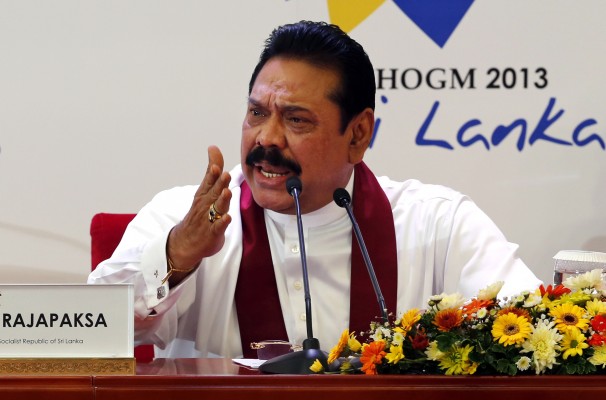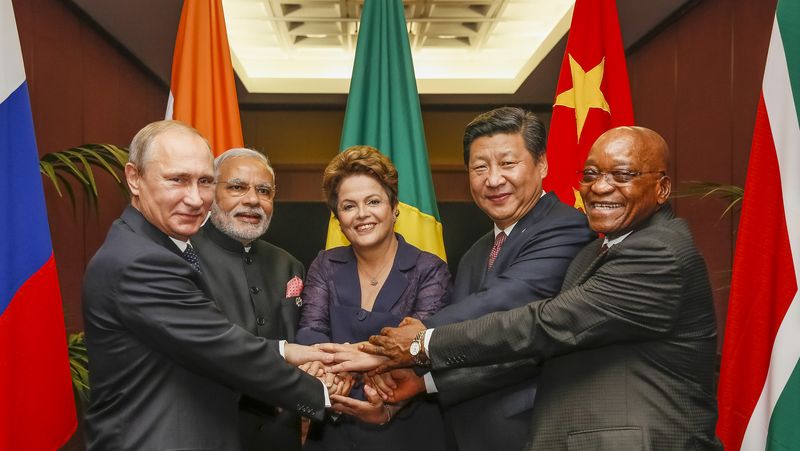Last week,representatives from the 53 members of the Commonwealth of Nations gathered in Colombo for the 23rd Commonwealth Heads of Government Meeting. By hosting the summit, Sri Lanka took over Chairmanship of the Commonwealth for the next two years.
Commonwealth summits are not generally known for their political salience, more often providing uncontroversial opportunities for group photos and expressions of goodwill. This year’s summit, however, was unusually charged.
In many ways, the summit was supposed to be a showcase for Sri Lanka’s emergence as a rapidly modernizing country on the global stage. Indeed, in the past few years Sri Lanka has made immense economic progress, most visible through massive investment in physical infrastructure and high levels of per capita GDP growth. The items on the official agenda focused on economic issues, such as how to deal with high levels of public debt and alleviating poverty. However, the shadow of the not so distant past loomed large over this year’s summit.
Earlier this year, Canadian Prime Minister Stephen Harper made headlines when he threatened to boycott the summit, in protest of Sri Lanka’s human rights record, an unusual move for a Commonwealth summit. Far from an empty threat, the prime minister did not in fact attend the meeting. Similarly, Indian Prime Minister Manmohan Singh stayed away, having his foreign minister attend in his stead- a clear diplomatic snub. Significantly, both Canada and India can be considered political heavyweights in the Commonwealth. While this cannot be said of the Maldives, the president of the tiny island nation is the third head of state who did not attend in protest.
Shadows of the Past
Most of this international criticism has focused on Sri Lanka’s treatment of its Tamil population. The Sri Lankan state was engaged in a long and bloody civil war with the insurgent Liberation Tigers of Tamil Eelam (LTTE) from 1983 to 2009, in which thousands were killed on both sides. In the final stages of the war, thousands of Tamils disappeared, were displaced and as many as 40000 Tamils, including civilians, were killed by government troops, according to a UN report released this summer.
While the government has taken steps toward reconciliation, including the institution of a “Lessons Learnt and Reconciliation Commission”, independent investigation of human rights violations have not been conducted. Indeed, the government has been able to use the commission, which largely exonerated government forces of committing atrocities against Tamil civilians, to decrease pressure for an impartial international investigation, according to the International Crisis Group.
In addition, criticism has focused on the increasingly authoritarian style of governance practiced by president Mahinda Rajapaksa, including widespread intimidation of journalists and allegations of torture.
There is thus ample reason to criticize the Sri Lankan government for its actions. However, it is likely that domestic politics played an important role in both India and Canada’s decision to boycott the summit.
In India, a motion by the Tamil Nadu assembly demanding a boycott preceded Manmohan Singh’s announcement that he would not attend the summit. In Canada, home to the largest Tamil diaspora in the world, Tamils form an important block of voters in key electoral districts in Toronto.
Other leaders with fewer domestic interests at stake, such as British Prime Minister David Cameron, have also come out strongly criticizing the Sri Lankan government, while still preferring to engage Sri Lanka rather than boycotting the summit. In fact, Prime Minister Cameron was able to effectively use his presence at the summit to highlight Sri Lanka’s failings by calling for an international investigation of Sri Lanka’s conduct in the civil war during his stay in Colombo.
While engagement might be the more fruitful strategy for changing the situation in Sri Lanka, the boycotts have at least shone a light on Sri Lanka’s human rights record, doubtless a positive development.
While Sri Lanka should not be barred from attending Commonwealth summits, bestowing upon the country the chairmanship is clearly a questionable decision.
In recent years, the Commonwealth has tried to reinvent itself as a group of countries no longer tied together primarily by their British imperial legacy, but rather by a common adherence to democracy, good governance and human rights.
The Commonwealth has taken members to task for human rights abuses before. Pakistan has been suspended twice, in 1999 and 2007, and Zimbabwe’s suspension in 2002 preceded its withdrawal from the organization. Most prominently, South Africa was forced to withdraw from the Commonwealth in 1961 because the country was not permitted to remain a member with its policy of Apartheid.
The Commonwealth should therefore once again speak out more explicitly on actions by members that go against its values.




